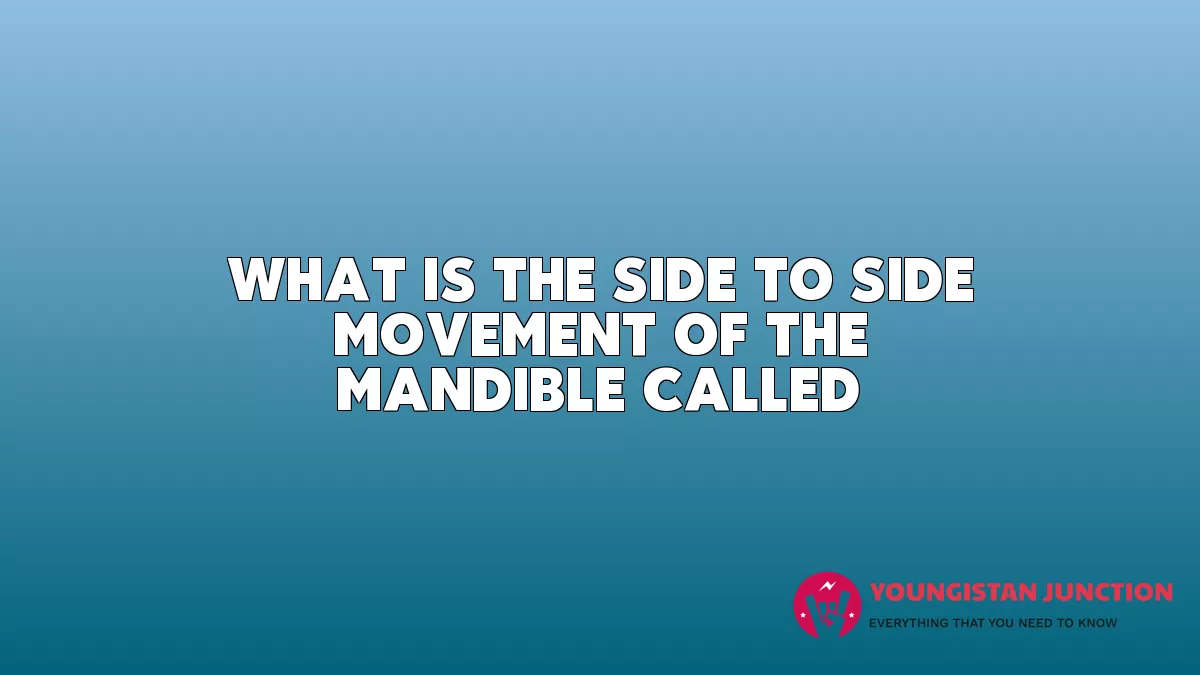What is the side to side movement of the mandible called?
- Correct Answer: shifting
- twitching
- cycling
- excursion
Explanation: Excursion Excursion is the side to side movement of the mandible. Lateral excursion moves the mandible away from the midline, toward either the right or left side. Medial excursion returns the mandible to its resting position at the midline.
More Random Questions
Q: Which city traded with Mediterranean regions?
Ans: Arikamedu
Ans: Arikamedu
Q: Where will the upcoming Women's T20 World Cup be held?
Ans: UAE
Ans: UAE
Q: What is it called when the vesicle and target membrane fuse?
Ans: vesicle fusion
Ans: vesicle fusion
Q: What was the main crop in early Mehrgarh?
Ans: Barley
Ans: Barley
Q: Water is considered a what since it is a polar molecule with slightly positive and slightly negative charges, so ions and polar molecules can readily dissolve in it?
Ans: solvent
Ans: solvent
Q: Who has launched the 'Aarambh Program' to promote early childhood education on 24 August 2024?
Ans: Punjab
Ans: Punjab
Q: Ibuprofen and albuterol are examples of drugs whose _________ have different effects.
Ans: analogous
Ans: analogous
Q: Where has 'Pashmina wool' got the GI tag?
Ans: Ladakh
Ans: Ladakh
Q: According to Sharanghadhara, the Anupana for Hingwashtaka Churna in Kaphaja disorders is:
Ans: Honey
Ans: Honey
Q: When has CM Bhajanlal Sharma announced to celebrate "Pravasi Rajasthani Day"?
Ans: 10 December
Ans: 10 December
Q: Women's Kabaddi World Cup 2025 will be organized in which state of India?
Ans: Bihar (Rajgir Sports Academy)
Ans: Bihar (Rajgir Sports Academy)
Q: Which country has issued a postage stamp on Lord Ram of Ayodhya on 30 July 2024?
Ans: Laos
Ans: Laos
Q: What is the imaging technique of choice for evaluating pituitary tumors?
Ans: MRI
Ans: MRI
Q: What is a body of freshwater that flows downhill in a channel?
Ans: a stream
Ans: a stream
Q: Which gas makes balloons float?
Ans: Helium
Ans: Helium

